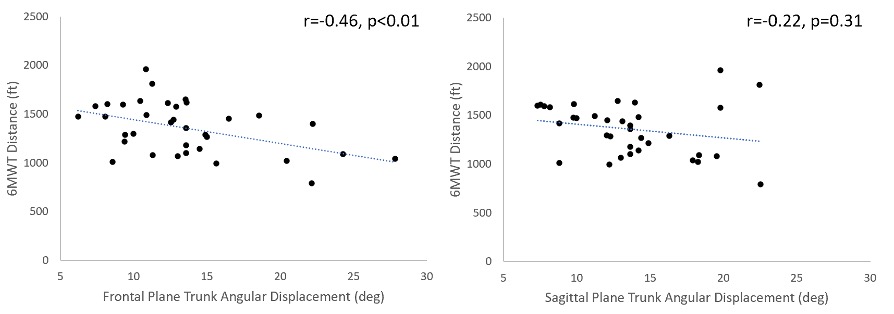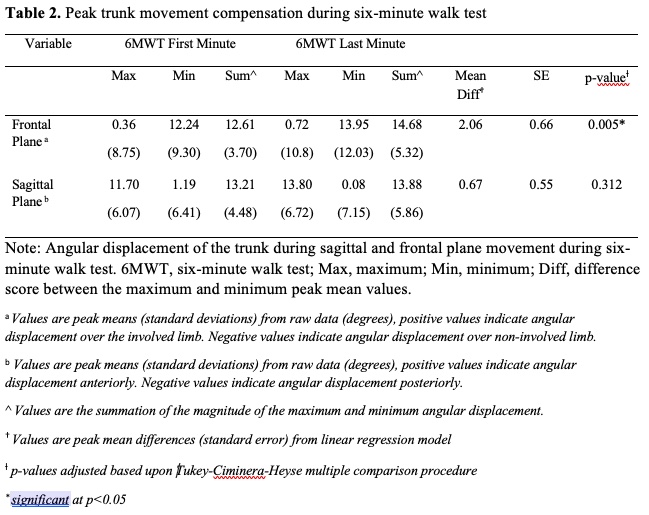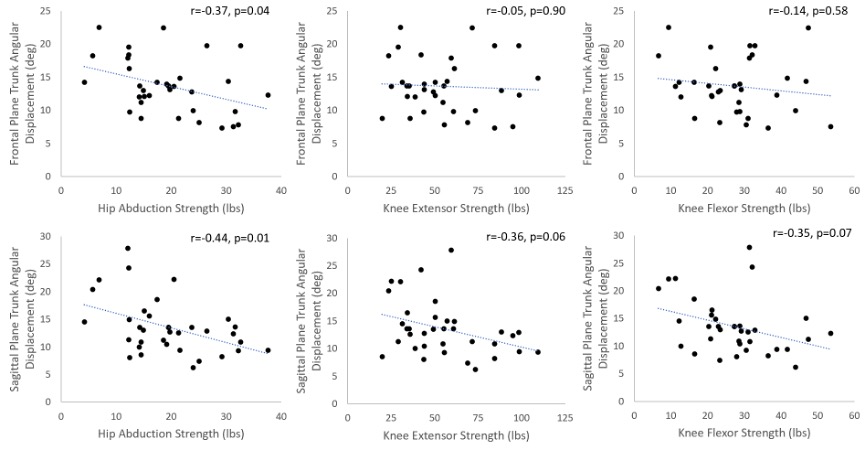Session Information
Session Type: Poster Session A
Session Time: 8:30AM-10:30AM
Background/Purpose: Movement compensation is common in people with hip osteoarthritis (HOA) and a biomarker of physical performance and muscle strength deficits in older adults. Inertial measurement units (IMUs) offer novel methods for identifying movement compensation during functional activities. However, the relationship between deficits in physical performance, muscle strength and fatigue on movement compensation is unknown in people with HOA. Therefore, the purpose of this study was to compare the relationship between trunk movement compensation identified by IMUs and physical function assessed by validated physical performance and muscle strength measures.
Methods: Thirty-five participants (63.3+7.4 years, 57% male, 28.6+4.5 kg/m2) with end-stage HOA who were scheduled to undergo a total hip arthroplasty were enrolled in the study. A cross-sectional study design was used. Two inertial measurement units were used to assess trunk onto pelvis movement compensation during the six-minute walk test (6MWT). Hip abduction, knee extension and knee flexion strength were measured using hand-held dynamometer. General linear regression models were used to regress trunk movement compensation onto 6MWT performance and muscle strength measures. Pairwise t-tests were used to evaluate the influence fatigue has on trunk movement compensation by comparing the first and last minute of the 6MWT.
Results: Greater trunk movement compensation was related to poorer 6MWT (p< 0.01; r=-0.46). Greater hip abduction weakness was related to increased trunk movement compensation in both the sagittal (p=0.01; r=-0.44) and frontal (p=0.04; r=-0.37) planes. Participants demonstrated greater trunk movement compensation during the last minute compared to the first minute (p< 0.01) of 6MWT.
Conclusion: Trunk movement compensation has a negative influence on physical function in people with HOA. Greater trunk movement compensation relates to poorer performance on the six-minute walk test and greater hip abduction weakness. Prolonged walking leads to a greater increase in trunk movement compensation, which could have future ramifications of accelerated arthritic changes in secondary joints.
To cite this abstract in AMA style:
Christensen J, Quammen D, Rigby J, Christiansen C, Stevens-Lapsley J. Trunk Movement Compensation Is Associated with Physical Performance Measures and Fatigue Deficits in Hip Osteoarthritis [abstract]. Arthritis Rheumatol. 2021; 73 (suppl 9). https://acrabstracts.org/abstract/trunk-movement-compensation-is-associated-with-physical-performance-measures-and-fatigue-deficits-in-hip-osteoarthritis/. Accessed .« Back to ACR Convergence 2021
ACR Meeting Abstracts - https://acrabstracts.org/abstract/trunk-movement-compensation-is-associated-with-physical-performance-measures-and-fatigue-deficits-in-hip-osteoarthritis/



